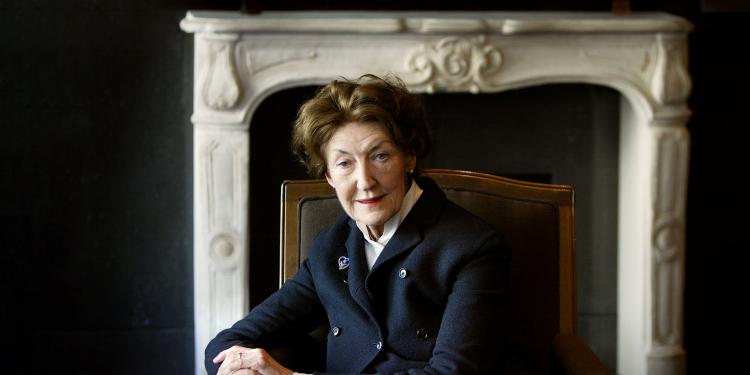Reminiscent of Hazzard’s description, in the Paris Review, of her understanding of how the ‘private wars’ of her parents’ marriage played out in tandem with the ‘global one’, these little hand-grenades of intimate trauma in Jenny’s life detonate against the backdrop of international conflict. Jenny is used to the story of her early ‘uprooting’ being met with expressions of anguish in others. Yet, as she observes, ‘although the sufferings of children are the worst, being inextinguishable – children themselves seldom have a proper sense of their own tragedy, discounting and keeping hidden the true horrors of their short lives, humbly imagining real calamity to be some prestigious drama of the grown-up world.’ The Bay of Noon recounts just one such ‘drama of the grown-up world’, a landscape within which ‘strands of love’ wind their way, ‘entangling, strangling, wiggling’, between people across a crowded room.
When it comes down to it, the plot of The Bay of Noon is not especially complex. Jenny is looking back on her year in Naples, remembering her imbroglios with an older Italian woman named Gioconda; Gioconda’s married lover, Gianni; and her own beau, Justin, a rather dour Scots marine biologist she meets through her work. That this ‘game of sexual musical chairs’, as J. D. McClatchy describes it, descends into a tale of betrayal comes as no surprise, so for me to divulge that here doesn’t count as a spoiler. No true admirer of Hazzard’s work reads it for her plots; it’s not that they aren’t successful, it’s more that they’re the least of the attractions on display. Instead, one reads Hazzard for the beauty of her prose, and the steady, studied poise of her syntax. The reader is thus left with the impression of a series of beautiful vignettes, explained perhaps by Hazzard’s illuminating confession in the Paris Review that, to a certain extent, she ‘see[s] life as “occasional” or “incidental”, with episodes starting out from the dailiness of things’.
Inspired in no small part by her own youthful experience in Italy – while working for the UN Secretariat in New York in the 1950s and following a painful break-up, Hazzard took a secondment post in Naples for a year, which ignited her life-long love affair with the country – first and foremost The Bay of Noon is, in Hazzard’s own words, ‘a love letter to Naples’, and she evokes the city here with the hazy, somnolent quality of a rich and captivating dream. That applies to both the city Jenny gets to know – its ‘assets […] so secret, they give the impression of having been deliberately concealed; lodged away, for the most part, in malodorous side-streets, embedded in some squalid recess, they partake of the city’s poverty’ – and that which she’s told about: in blackout during the war, but lit by the eruption of Vesuvius behind it, ‘the entire region irradiated with a red glow […] It was real hell we were in,’ Giaconda tells Jenny, ‘bathed in red, overhung by a sky of ash, smelling of fire and brimstone.’
Later in life, Hazzard and her husband, the biographer and translator Francis Steegmuller (who’d been left extremely well-off following the death of his first wife) split their time between Manhattan’s Upper East Side and homes in Capri and Naples. ‘Going to Europe was about as final as going to Heaven,’ reads a line in The Transit of Venus, its heroine Caro’s experience of reinventing herself once she arrives in the northern hemisphere clearly inspired by the author’s own makeover: ‘A mystical passage to another life, from which no one returned the same.’ In real life, Hazzard would revisit Australia, but never properly return. Her past really was a foreign country; by then, she belonged to America and Europe. It might not be her most accomplished novel, but nothing she wrote seems quite as close to her heart as the world she captures in The Bay of Noon.
‘TBR: The Booker Revisited’, is an editorial partnership between The Booker Prize Foundation and Lit Hub.
Lucy Scholes is a critic based in London and Senior Editor at McNally Editions















